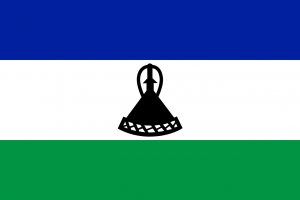Difference between revisions of "Language/Southern-sotho/Grammar/Negating-Sentences"
m (Quick edit) |
m (Quick edit) |
||
| Line 1: | Line 1: | ||
<span pgnav> | |||
{| class="wikitable pg_template_nav" | |||
|[[Language/Southern-sotho/Grammar/Asking-Questions|◀️ Asking Questions — Previous Lesson]] | |||
|[[Language/Southern-sotho/Vocabulary/Shopping-Vocabulary|Next Lesson — Shopping Vocabulary ▶️]] | |||
|} | |||
</span> | |||
{{Southern-sotho-Page-Top}} | {{Southern-sotho-Page-Top}} | ||
| Line 99: | Line 106: | ||
{{Southern-sotho-Page-Bottom}} | {{Southern-sotho-Page-Bottom}} | ||
<span pgnav> | |||
{| class="wikitable pg_template_nav" | |||
|[[Language/Southern-sotho/Grammar/Asking-Questions|◀️ Asking Questions — Previous Lesson]] | |||
|[[Language/Southern-sotho/Vocabulary/Shopping-Vocabulary|Next Lesson — Shopping Vocabulary ▶️]] | |||
|} | |||
</span> | |||
Revision as of 22:46, 2 April 2023
| ◀️ Asking Questions — Previous Lesson | Next Lesson — Shopping Vocabulary ▶️ |
Negating sentences in any language can be a tough task, but with practice, it can become second nature. In this lesson, we will focus on how to negate sentences in Southern Sotho by negating verbs, nouns, adjectives, and forming negative questions. By the end of the lesson, you will be able to confidently construct negative sentences and questions in Southern Sotho.
Negating Verbs
To negate a verb in Southern Sotho, all you need to do is add the negative particle "ha" or "ho" (depending on the tense) before the verb. Let's take a look at some examples:
| Southern Sotho | Pronunciation | English |
|---|---|---|
| Ke kopa lihlopha. | ke kɔpa liɬɔpha | I want a pen. |
| Ha ke kopa lihlopha. | ha ke kɔpa liɬɔpha | I don't want a pen. |
| O tla bona ka sebaka. | ɔ t͡ɬa bɔna ka sɛbaka | He will see with glasses. |
| Ho tla bona ke sebaka. | hɔ t͡ɬa bɔna ke sɛbaka | He will not see with glasses. |
As you can see, all you need to do is place "ha" or "ho" before the verb to make it negative. "Ha" is used in the present tense while "ho" is used in other tenses.
Negating Nouns and Adjectives
To negate a noun or an adjective, you need to add the negative prefix "le" or "se" before the noun or adjective.
Let's take a look at some examples:
| Southern Sotho | Pronunciation | English |
|---|---|---|
| Ntate Mohapi ke moruti. | n̩tate mɔhapɪ ke mɔruti | Mr. Mohapi is a teacher. |
| Se ntate Mohapi ke le moruti. | sɛ n̩tate mɔhapɪ ke ɬɛ mɔruti | Mr. Mohapi is not a teacher. |
| Kgotso e tla u fihla. | kgot͡so ɛ t͡ɬa u fiɬla | Peace will come to you. |
| Kgotso e se u fihla. | kgot͡so ɛ sɛ u fiɬla | Peace will not come to you. |
In the examples above, we used the negative prefix "le" in the present tense to make the noun or adjective negative.
Forming Negative Questions
In Southern Sotho, negative questions are formed by adding the negative particle "ha" or "ho" at the beginning of a question. Let's take a look at some examples:
| Southern Sotho | Pronunciation | English |
|---|---|---|
| Ha o tla bona? | ha ɔ t͡ɬa bɔna | Will you not see? |
| Ho na le sebaka? | hɔ na ɬɛ sɛbaka | Is there no glass? |
| Ha ke batla ruri? | ha ke bæt͡ɬa ruri | Don't I want it for real? |
As you can see, the negative particle "ha" or "ho" is added at the beginning of the question. It is important to note that the question word stays in the same position as in a positive question.
In conclusion, negating sentences in Southern Sotho is quite easy once you understand the rules. All you need to do is add the negative particle "ha" or "ho" before a verb, and the negative prefix "le" or "se" before a noun or adjective. Negative questions are formed by adding "ha" or "ho" at the beginning of a question. Practice these rules and you will be able to confidently construct negative sentences and questions in Southern Sotho.
- Remember to take your time and practice these rules until you feel confident.
- Try to use negation in everyday sentences to help you remember the rules.
- If you're unsure, don't hesitate to ask a native speaker or your Southern Sotho teacher for help.
Other Lessons
- How to Use Be
- Personal Pronouns
- Describing Nouns
- Negation
- Conditional Mood
- Questions
- Asking Questions
- Noun Classes
- 0 to A1 Course
- Future Tense
| ◀️ Asking Questions — Previous Lesson | Next Lesson — Shopping Vocabulary ▶️ |
